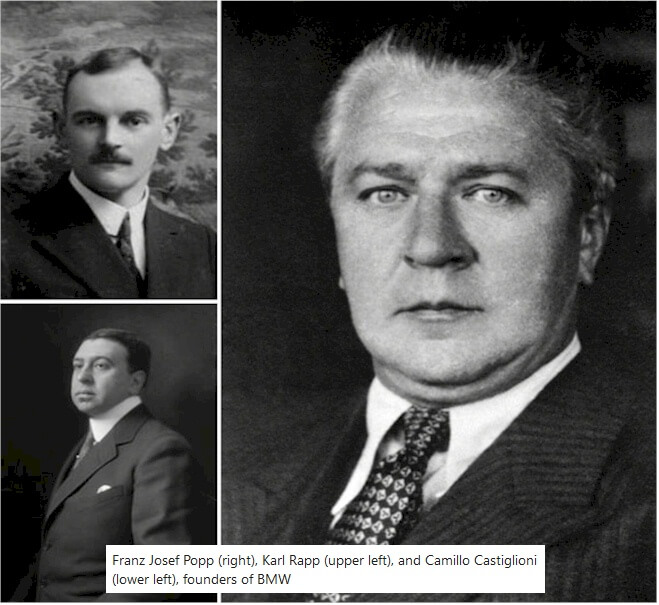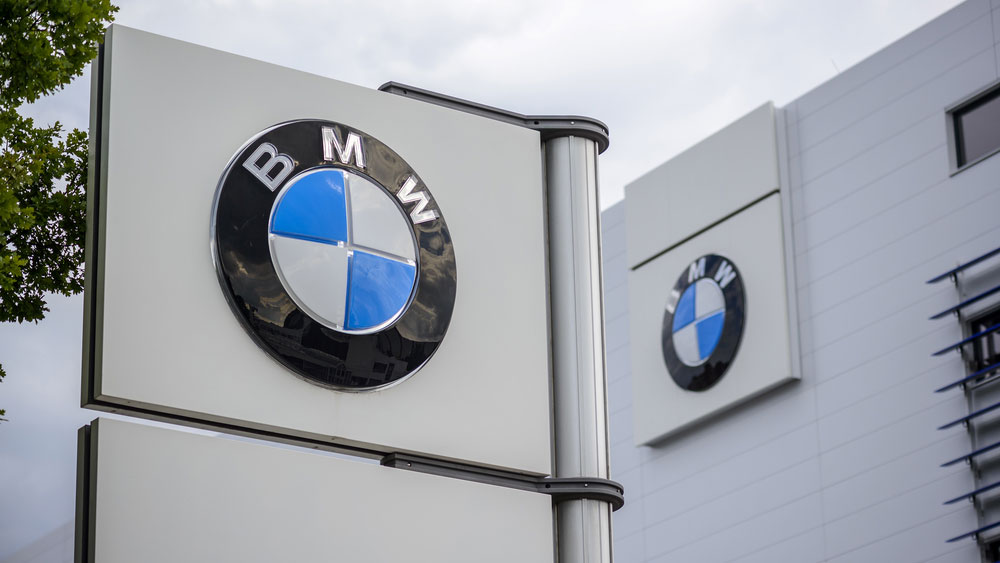BMW, officially known as Bayerische Motoren Werke AG, is a prestigious German automobile and motorcycle manufacturer headquartered in Munich, Bavaria, Germany. Established in 1916, BMW has a rich heritage and a long-standing reputation for producing high-quality vehicles that embody luxury, performance, and innovation.
BMW offers a diverse lineup of vehicles, including sedans, SUVs, coupes, convertibles, electric cars, and motorcycles, catering to a wide range of customer preferences and needs. The company’s automobile division is renowned for its dynamic driving experience, exquisite craftsmanship, and cutting-edge technology.
One of BMW’s core principles is its unwavering commitment to precision engineering. The company places great emphasis on developing advanced technologies and materials to optimize performance, fuel efficiency, and safety. From lightweight construction techniques to state-of-the-art engine designs, BMW vehicles are engineered to deliver exceptional driving dynamics and uncompromising quality.
In addition to its automotive division, BMW also has a thriving motorcycle division. BMW motorcycles are celebrated for their powerful engines, agile handling, and iconic design. They have earned a strong reputation among motorcycle enthusiasts for their performance on the road and the track.
BMW has consistently been at the forefront of automotive innovation. The company has embraced electric mobility and has made significant strides in developing electric and hybrid vehicles. Models like the BMW i3 and i8 showcase BMW’s commitment to sustainable transportation, combining eco-friendly technology with the brand’s signature performance.
Beyond its product offerings, BMW has a global presence with production facilities and subsidiaries in various countries. The company has established itself as a symbol of German engineering excellence and luxury worldwide.
In summary, BMW is a distinguished German automotive and motorcycle manufacturer with a rich heritage, a commitment to precision engineering, and a reputation for delivering luxury, performance, and technological innovation in its vehicles. With a wide range of models and a global presence, BMW continues to be a benchmark of automotive excellence.
Founding History of BMW – A glorious past
The history of BMW traces back to the early 20th century when it was known as Bayerische Motoren Werke GmbH. The company’s origins can be traced to a German aircraft engine manufacturer called Rapp Motorenwerke. In 1913, Karl Rapp established Rapp Motorenwerke in Munich, Germany. The company primarily focused on manufacturing aircraft engines for the German military during World War I. Rapp Motorenwerke gained a reputation for producing reliable engines, but financial difficulties forced Karl Rapp to seek external assistance.
In 1916, a German industrialist named Franz Josef Popp, along with financier Camillo Castiglioni and engineer Max Friz, came to the aid of Rapp Motorenwerke. Together, they formed a new company called Bayerische Flugzeugwerke (BFW) with the aim of manufacturing aircraft engines. Under Popp’s leadership, BFW expanded its production capabilities and gained recognition for its high-quality engines.

In 1917, with World War I nearing its end, the demand for aircraft engines began to decline rapidly. Realizing the need to diversify their business, BFW decided to shift their focus to other areas of manufacturing. Max Friz, the talented engineer at BFW, played a crucial role in this transition.
Friz and his team designed and developed a small, air-cooled engine for motorcycles. This engine, known as the M2B15, was lightweight, efficient, and powerful. It marked BFW’s entry into the world of motorcycles and laid the foundation for their future success.
In 1922, BFW decided to rebrand itself and adopted the name Bayerische Motoren Werke (BMW). The new name reflected the company’s commitment to producing engines and vehicles of the highest quality. BMW’s first motorcycle, the BMW R32, was introduced in 1923. The R32 featured the iconic boxer engine configuration with its cylinders arranged horizontally.
The BMW R32 gained attention for its exceptional performance, reliability, and innovative features. It became the cornerstone of BMW’s motorcycle production and established the company as a leading manufacturer in the industry. BMW’s motorcycles were soon recognized for their superior engineering, craftsmanship, and sporty designs.
Expanding its product range, BMW entered the automobile market in the late 1920s. The company introduced the BMW Dixi, which was essentially a licensed version of the British Austin 7. While the Dixi was a modest entry-level car, it provided BMW with valuable experience in car manufacturing and set the stage for future developments.
Throughout the 1930s, BMW continued to innovate and expand its automobile lineup. They introduced advanced features like hydraulic brakes, independent front suspension, and the world’s first inline six-cylinder engine. These advancements earned BMW a reputation for producing high-performance, luxurious automobiles.
However, World War II brought significant challenges to BMW’s operations. The company’s production facilities were converted to support the war effort, focusing on manufacturing aircraft engines, motorcycles, and other military equipment. As Germany faced defeat in the war, BMW’s factories were heavily damaged.
Following the war, BMW faced a period of rebuilding and restructuring. The company initially focused on producing motorcycles to meet the growing demand for affordable transportation in post-war Germany. In the 1950s, BMW reentered the automobile market with the introduction of the BMW 501 luxury sedan.
Since then, BMW has experienced remarkable growth, expanding its product lineup and establishing itself as a global luxury automotive brand. The company has continued to innovate with advancements in technology, design, and performance, solidifying its position as a leader in the automotive industry.
Today, BMW is known for its premium vehicles, ranging from motorcycles to sedans, SUVs, and electric cars. It has a strong global presence and remains committed to its founding principles of engineering excellence, performance, and luxury.
Business Divisions of BMW – Beyond Cars
BMW Group, as a diversified automotive company, operates several business divisions that contribute to its overall success. Here are the different business divisions of BMW in detail:
BMW Automobiles: This division is the core of BMW’s business and focuses on the production and sales of luxury automobiles. BMW offers a wide range of vehicles, including sedans, coupes, convertibles, and SUVs, under various model series like the 3 Series, 5 Series, 7 Series, and X Series. BMW automobiles are renowned for their exceptional performance, advanced technology, and elegant designs.
BMW Motorcycles: The motorcycle division of BMW produces a range of motorcycles designed for different purposes, including touring, sport, adventure, and urban commuting. BMW motorcycles are known for their powerful engines, cutting-edge features, and superior handling. They offer a unique riding experience and have a dedicated following among motorcycle enthusiasts worldwide.
MINI: MINI is a subsidiary of BMW Group that specializes in manufacturing compact cars with a focus on style, efficiency, and driving fun. The MINI lineup includes models like the MINI Cooper, Clubman, Countryman, and Convertible. MINI vehicles are recognized for their iconic retro-inspired designs, agile handling, and customizable options.
Rolls-Royce Motor Cars: BMW Group also owns Rolls-Royce Motor Cars, a British luxury automobile manufacturer known for crafting the world’s finest luxury cars. Rolls-Royce vehicles are renowned for their exquisite craftsmanship, opulent interiors, and unparalleled attention to detail. The Rolls-Royce lineup includes models like the Phantom, Ghost, Wraith, and Dawn.
BMW Financial Services: This division provides a range of financial services to support customers in purchasing or leasing BMW vehicles. It offers financing options, such as loans and leases, as well as insurance products, maintenance programs, and extended warranties. BMW Financial Services aims to enhance the customer experience and make vehicle ownership more accessible and convenient.
BMW Designworks: BMW Designworks is a creative consultancy that collaborates with various industries beyond automotive, including aviation, technology, lifestyle, and consumer goods. It offers design services such as product design, user experience (UX) design, brand design, and strategic consulting. BMW Designworks helps clients develop innovative and appealing designs that align with their brand image and customer needs.
BMW i: BMW’s electric mobility division, known as BMW i, focuses on developing sustainable and electric vehicles. It includes models like the BMW i3 (an electric city car) and the BMW i8 (a plug-in hybrid sports car). BMW i also explores new concepts and technologies related to electric mobility, including battery technology, charging infrastructure, and digital services.
These business divisions collectively contribute to BMW Group’s success and cater to different customer preferences and market segments. By offering a diverse portfolio of vehicles and services, BMW has established itself as a leading player in the global automotive industry.
Why is BMW so successful around the world? – Growth Strategy of BMW
BMW has achieved remarkable success in the automotive industry for several reasons. Here are the key factors contributing to BMW’s success:
Strong Brand Identity: BMW has developed a strong brand identity built on its core values of engineering excellence, performance, and luxury. The brand is synonymous with driving pleasure and is highly regarded for its high-quality vehicles, innovative technology, and iconic designs. BMW’s consistent focus on delivering a premium experience has earned it a loyal customer base.
Technological Innovation: BMW has a long-standing reputation for technological innovation. The company consistently invests in research and development to introduce cutting-edge features and advancements in its vehicles. BMW is known for its advanced engines, efficient drivetrains, innovative safety systems, and connectivity solutions. By staying at the forefront of automotive technology, BMW attracts customers who seek the latest advancements and superior performance.
Driving Dynamics: BMW has established itself as a brand that offers exceptional driving dynamics. The company places a strong emphasis on creating vehicles that provide a thrilling and engaging driving experience. BMW achieves this through meticulous engineering, precise handling, and a perfect balance between comfort and performance. The brand’s reputation for sportiness and dynamic driving sets it apart from its competitors.
Broad Product Portfolio: BMW offers a broad product portfolio that caters to various market segments and customer preferences. The company has a diverse range of vehicles, including sedans, coupes, convertibles, SUVs, and electric cars. This comprehensive lineup allows BMW to reach a wide range of customers, from those seeking luxury and comfort to those looking for sportiness and performance. The ability to provide options for different needs and lifestyles contributes to BMW’s success.
Global Production and Market Presence: BMW has established a robust global production and market presence. The company operates manufacturing plants in several countries, allowing it to efficiently produce vehicles tailored to regional demands. Additionally, BMW has a strong international distribution network, ensuring its vehicles are available in various markets worldwide. This global presence enables BMW to tap into diverse customer bases and seize opportunities in different regions.
Focus on Sustainability: In recent years, BMW has made significant efforts to embrace sustainability and develop environmentally friendly solutions. The company has invested in electric mobility with its BMW i sub-brand and offers a range of electric and hybrid vehicles. BMW is also committed to reducing carbon emissions in its production processes and has implemented sustainable practices across its operations. This focus on sustainability aligns with the evolving customer demands for eco-friendly transportation and enhances BMW’s reputation as a responsible automotive manufacturer.
Customer-Centric Approach: BMW places a strong emphasis on understanding and meeting customer needs. The company invests in market research, customer feedback analysis, and customer engagement to gain insights and improve its products and services. BMW’s commitment to providing exceptional customer experiences, whether through personalized services, innovative features, or responsive customer support, contributes to its success and fosters customer loyalty.
Strong Marketing and Branding: BMW is known for its effective marketing and branding strategies. The company consistently communicates its brand values and unique selling propositions through impactful advertising campaigns, sponsorships, and partnerships. BMW’s strong marketing efforts help build awareness, generate excitement, and maintain its position as a desirable and aspirational brand.
In conclusion, BMW’s success can be attributed to its strong brand identity, technological innovation, driving dynamics, broad product portfolio, global presence, sustainability initiatives, customer-centric approach, and effective marketing strategies. By consistently delivering high-quality vehicles that cater to diverse customer needs and aspirations, BMW has secured its position as a leading luxury automotive manufacturer.
Financials of BMW over the years
Here is a detailed overview of BMW’s financials over the years:
Revenue: BMW’s revenue has grown steadily over the past few years, from €71.1 billion in 2016 to €95.2 billion in 2022. This growth has been driven by a number of factors, including the increasing popularity of luxury cars and the expansion of BMW’s global footprint.
Earnings: BMW’s earnings have also grown steadily over the past few years, from €5.8 billion in 2016 to €9.2 billion in 2022. This growth has been driven by the same factors that have led to increased revenue, as well as by the company’s efforts to control costs.
Profitability: BMW’s profitability has also improved over the past few years. The company’s profit margin has increased from 8.2% in 2016 to 9.6% in 2022. This improvement is due to the factors mentioned above, as well as to the company’s focus on efficiency and productivity.
Debt: BMW’s debt has increased slightly over the past few years, from €10.3 billion in 2016 to €11.2 billion in 2022. However, the company’s debt-to-equity ratio has remained relatively stable, at around 0.6. This indicates that BMW is still a relatively healthy company financially.
Overall, BMW’s financials have been strong over the past few years. The company has experienced steady growth in revenue, earnings, and profitability. Debt has increased slightly, but the company’s debt-to-equity ratio remains relatively stable. These factors indicate that BMW is a financially healthy company that is well-positioned for future growth.
Here are some of the key drivers of BMW’s financial performance over the years:
- The increasing popularity of luxury cars: BMW is a luxury car manufacturer, and the global market for luxury cars has been growing steadily in recent years. This growth has been driven by a number of factors, including rising incomes in developing countries, the increasing affluence of the middle class in developed countries, and the growing popularity of SUVs and crossovers.
- The expansion of BMW’s global footprint: BMW has been expanding its global footprint in recent years, opening new dealerships and production facilities in new markets. This expansion has helped the company to reach new customers and to grow its sales.
- The company’s focus on efficiency and productivity: BMW has been focusing on efficiency and productivity in recent years, which has helped the company to reduce costs and improve profitability. The company has implemented a number of initiatives to improve efficiency, such as investing in new technology and streamlining its production processes.
These are just some of the key drivers of BMW’s financial performance over the years. The company has a strong track record of financial success, and it is well-positioned for future growth.
Also Read: The Volkswagen Group: A Deep Dive into the Company’s Portfolio of Brands
Marketing Strategies of BMW
BMW implements a comprehensive marketing strategy to effectively position itself as a leading luxury automotive brand and engage with its target audience. The company’s marketing efforts revolve around several key strategies, including brand building, experiential marketing, digital marketing, and customer engagement. Here’s a detailed explanation of BMW’s marketing strategies:
Brand Building: BMW focuses on building a strong brand image that is synonymous with luxury, performance, and driving pleasure. The company emphasizes its engineering expertise, technological innovations, and dynamic driving experience. BMW consistently communicates its brand values through compelling advertising campaigns, showcasing its vehicles’ design, performance, and advanced features. By leveraging its brand heritage and reputation, BMW establishes an emotional connection with consumers and maintains a premium brand position.
Experiential Marketing: BMW employs experiential marketing to allow customers to interact with its vehicles and brand firsthand. The company organizes test drives, track events, and roadshows that offer potential buyers the opportunity to experience the performance and quality of BMW vehicles. These immersive experiences create memorable moments, enhance brand perception, and generate positive word-of-mouth. BMW also sponsors and participates in high-profile events, such as auto shows and sports competitions, to engage with a wider audience.
Digital Marketing: BMW recognizes the significance of digital channels and incorporates digital marketing strategies into its overall marketing approach. The company utilizes online platforms, social media, and digital advertising to reach and engage with its target audience. BMW creates engaging content, including videos, interactive experiences, and social media campaigns, to showcase its vehicles, technology, and brand values. Digital marketing allows BMW to target specific customer segments, personalize messaging, and leverage data analytics for targeted marketing campaigns.
Customer Engagement: BMW places a strong emphasis on customer engagement to foster long-term relationships and enhance loyalty. The company offers personalized services, such as BMW ConnectedDrive, which provides connected car features and digital services to enhance the ownership experience. BMW also maintains active customer relationship management through newsletters, loyalty programs, and exclusive events for BMW owners. By prioritizing customer satisfaction and engagement, BMW aims to create brand advocates who promote the brand and attract new customers.
Innovation and Sustainability: BMW highlights its commitment to innovation and sustainability as a key aspect of its marketing strategy. The company showcases its advancements in electric mobility, autonomous driving technologies, and sustainable manufacturing processes. BMW’s marketing messaging emphasizes its efforts to reduce carbon emissions, develop efficient vehicles, and contribute to a greener future. By aligning its brand with sustainability and technological leadership, BMW appeals to environmentally conscious consumers and positions itself as a forward-thinking automotive brand.
Influencer Marketing and Partnerships: BMW collaborates with influential individuals, such as athletes, celebrities, and social media influencers, to promote its brand and vehicles. These partnerships help BMW reach wider audiences, tap into new market segments, and enhance its brand image through the association with admired personalities. BMW also engages in strategic partnerships with other companies in various industries, such as technology and lifestyle, to leverage synergies, co-create content, and enhance brand exposure.
By combining these marketing strategies, BMW effectively communicates its brand values, engages with its target audience, and maintains a strong market presence. The company’s focus on brand building, experiential marketing, digital channels, customer engagement, innovation, and strategic partnerships contributes to its success in positioning itself as a leading luxury automotive brand.
To read more content like this, subscribe to our newsletter



